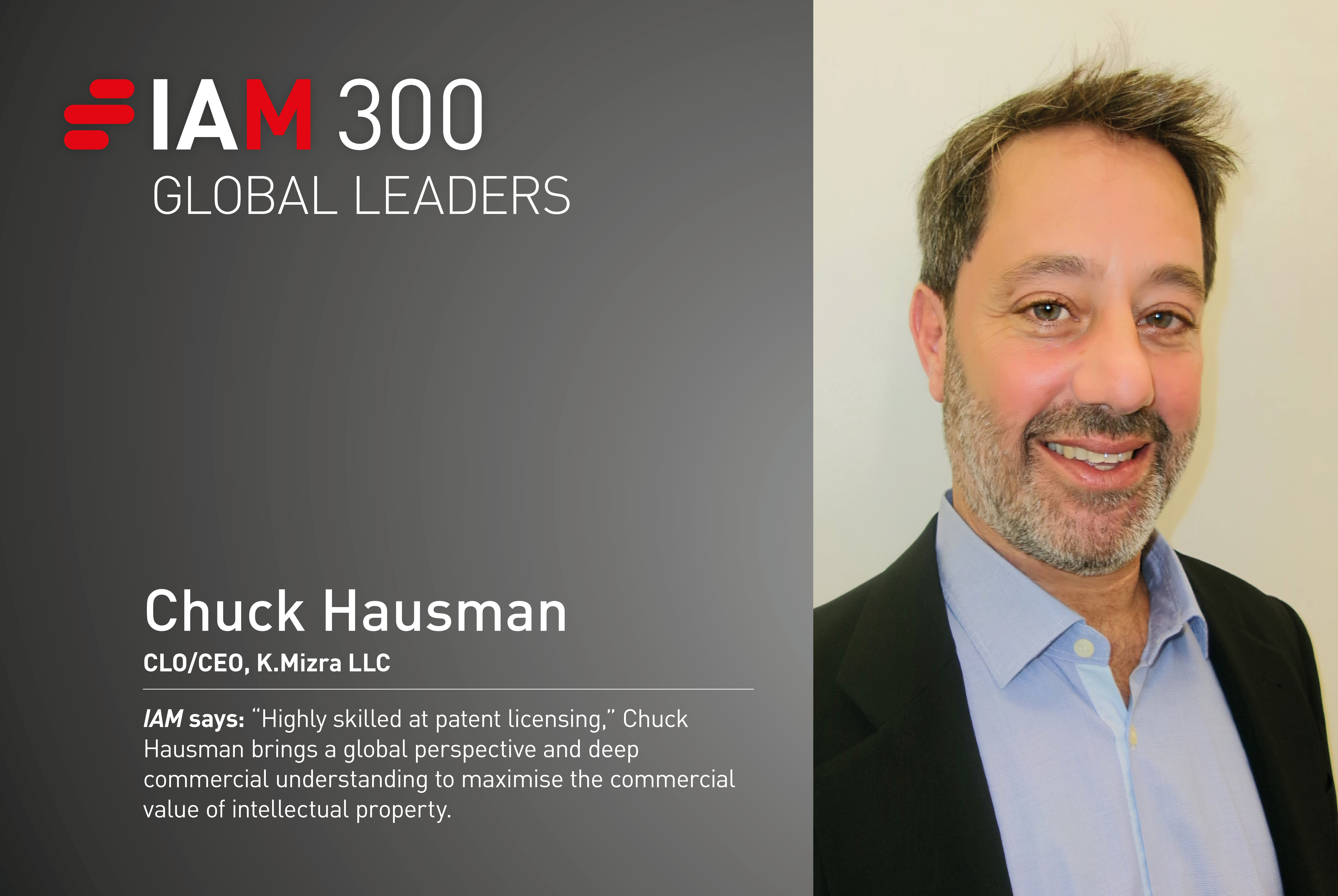Chuck Hausman
What are the key metrics for measuring a successful IP strategy?
The portfolio business model is a good first metric to use when measuring an IP strategy. A successful business model will answer a lot of questions, including:
- Is the goal to monetise the portfolio or to use it in a defensive position?
- Has a thorough validity analysis been completed with regard to the portfolio?
- Are there claim charts prepared?
- Have potential licensees been specifically identified and put on notice?
- Has jurisdiction and venue analysis been completed?
These answers are great metrics by which to measure an IP strategy.
What common mistakes do parties make when embarking on a licensing negotiation – and how can they avoid them?
Starting negotiations in a professional and friendly manner is crucial. Litigation and licensing can be contentious enough. There is no reason to make the negotiations confrontational or adversarial. Each side will likely not agree on much, but when there is some common ground and it is recognised, it allows the parties to move forward somewhat. When there is no common ground, I think it is best to leave the door open to continue discussions at some later inflection point.
What has been your most memorable case to date, and why?
I was involved in the Napster litigation very early in my career, which gained international publicity. I was amazed at the amount of resources that the case required. It also had a significant and observable impact on an entire industry; being a part of that was special.
Another case that I worked on involved auditing a large manufacturer. We had to go through files that had work orders and production samples. I was running the audit team and hoping to clear about 1,000 boxes of these production files in one week. One member of the audit team was making very slow progress on his stack of files. I had worked with him in the past and knew that he did great work, so I was frustrated that he was working so slowly even after I pushed him many times. Eventually, he pieced together what he had found and what was missing. When we asked the manufacturer for these missing files, they admitted that they had hidden them from us and the case settled. It was a bit like a movie scene.
K Mizra manages a patent portfolio spanning numerous jurisdictions across the United States and Europe. What are your top tips for ensuring a good result when embarking on multi-jurisdictional litigation?
Every jurisdiction is unique. Having outside counsel you can trust is the most critical aspect, regardless of the jurisdiction. One consideration should be the patent’s origination. For example, if the patent comes from a research institute in Germany, then, all else equal, Germany should be the best jurisdiction. However, each family foreign counterpart will likely have differences that could affect infringement reads or validity issues.
Asserting a family of patents across multiple jurisdictions has positives and negatives. For example, discovery is not generally available in Europe, but production from discovery in a US case can be used in a German case. On the other hand, having multiple litigations on the same patent family means that many more things can go wrong. It is a balancing test in that regard.
What is the biggest career challenge that you have faced, and what can others learn from how you overcame it?
Starting K Mizra was a career challenge. I have worked on many different aspects of patent licensing over the years. However, doing all aspects of the business from start to end brings another perspective. There is a steep learning curve there. Being flexible and able to change mid-course is sometimes not easy but needed.
Finding good, talented people to work with and help on specific projects or aspects of running K Mizra was challenging initially. I knew of good people to work with in certain areas but others were completely new. Growing your network beyond those areas that you are directly involved in can be a good way to mitigate the steep learning curve climb.
Chuck Hausman
Chief Legal Officer
Chuck Hausman founded K Mizra in 2019, which focuses on acquiring high-value patents with a global reach. Its patent portfolio is the aggregation of portfolios from over a dozen inventors and companies. Prior to forming K Mizra, Mr Hausman specialised in IP enforcement and monetisation. His vast experience allows him to be equally comfortable with US and European litigation, and he has led hundreds of licensing negotiations and settlements.
